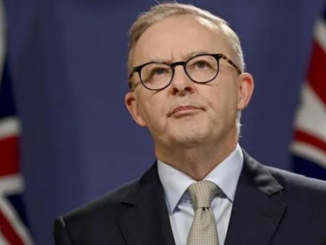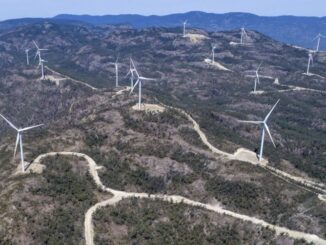
Australia’s parliament has passed legislation to pave the way for a historic referendum on Aboriginal rights, with voters set to decide if the Indigenous population gets a dedicated “voice” in national policymaking.
In a final vote in the Senate, the upper house, 52 voted in favour of the bill while 19 voted against.
The referendum will ask Australians whether they support altering the constitution to include a “Voice to Parliament“, a committee that can advise the parliament on matters affecting Aboriginal and Torres Strait Island people in Australia.
“Parliaments pass laws but it’s people that make history,” Prime Minister Anthony Albanese said in a news conference after the bill was passed.
The referendum is expected before the end of the year although Albanese has yet to set a date for it.
“This is your time, your chance, your opportunity to be a part of making history,” he said.
Aboriginal Australians represent about 3 percent of Australia’s population of nearly 26 million people, but make up more than a quarter of its prison population, according to official data, with many jailed for minor crimes.
About one-third of Indigenous Australians, thousands of whom were killed after the British arrived in Australia and took control of the land under the concept of terra nullius, a Latin legal term for “land belonging to no one”, live below the poverty line.
If the referendum is passed, Indigenous Australians, whose ancestors have lived on the continent for at least 60,000 years, would be recognised in the constitution for the first time.
Aboriginal and Torres Strait Islanders would also gain a constitutionally-enshrined right to be consulted by the government on laws that affect their communities.
“This is about who we are as a nation,” Albanese said.
“Now, the Australian people will have a chance to say ‘yes’ to reconciliation and ‘yes’ to constitutional recognition of First Nations people.”
Polls show majority backing for the so-called “Voice to Parliament” but support is slipping as the debate becomes increasingly acrimonious.
Senators supporting the bill clapped and cheered as the final numbers were read out in the chamber.
“It is a very simple request….to be recognised in the constitution,” Malarndirri McCarthy, an Indigenous woman and ruling Labor Party senator, told the chamber.
“A majority of the Indigenous people want this to happen,” she said.
Opposition leader Peter Dutton, whose Liberal Party is asking people to vote “no” in the referendum, has claimed a “yes” vote would split the country along racial lines.
“It will have an Orwellian effect where all Australians are equal but some Australians are more equal than others,” he said earlier this year.
That claim was condemned on Monday as “racist dog-whistling” by Greens party leader Adam Bandt.
But some Aboriginal Australians have also questioned the merits of the voice.
Independent Senator Lidia Thorpe, a prominent Indigenous activist, said it was a “powerless advisory body”.
“That’s what this is about — it’s appeasing the white guilt in this country,” she said before the bill was passed on Monday. She previously told Al Jazeera that Australia needed a Truth and Justice Commission to ensure more people knew about the country’s past and its treatment of Aboriginal people.
Historically, Australians have proved shy of constitutional change; out of 44 proposals put forward in 19 referendums, only eight have been passed by popular vote.
The last referendum was in 1999 when Australians rejected the establishment of a republic.
To win the referendum, the government will need to get a double majority, which means more than 50 percent of voters nationwide and a majority of voters in at least four of the six states must back the change.
Prime Minister Anthony Albanese urges a ‘yes’ vote in referendum on constitutional recognition for Aboriginal people.
ENB Top News
ENB
Energy Dashboard
ENB Podcast
ENB Substack



